- News
- Reviews
- Bikes
- Components
- Bar tape & grips
- Bottom brackets
- Brake & gear cables
- Brake & STI levers
- Brake pads & spares
- Brakes
- Cassettes & freewheels
- Chains
- Chainsets & chainrings
- Derailleurs - front
- Derailleurs - rear
- Forks
- Gear levers & shifters
- Groupsets
- Handlebars & extensions
- Headsets
- Hubs
- Inner tubes
- Pedals
- Quick releases & skewers
- Saddles
- Seatposts
- Stems
- Wheels
- Tyres
- Tubeless valves
- Accessories
- Accessories - misc
- Computer mounts
- Bags
- Bar ends
- Bike bags & cases
- Bottle cages
- Bottles
- Cameras
- Car racks
- Child seats
- Computers
- Glasses
- GPS units
- Helmets
- Lights - front
- Lights - rear
- Lights - sets
- Locks
- Mirrors
- Mudguards
- Racks
- Pumps & CO2 inflators
- Puncture kits
- Reflectives
- Smart watches
- Stands and racks
- Trailers
- Clothing
- Health, fitness and nutrition
- Tools and workshop
- Miscellaneous
- Buyers Guides
- Features
- Forum
- Recommends
- Podcast
feature
Cycling and weight loss — Top tips for pedalling away the pounds the healthy and sustainable way
We all ride our bikes for different reasons. Some of us ride for the competition, others for the fresh air, some of us just to get out of the house… but nearly all of us can agree that it has a positive impact on our health. Cycling is also a sport that lends itself to weight loss; so here's what we found works well, plus some fat-burning advice from a coach and top tips for sustainable and healthy weight loss.
After a merry festive period and a few months of letting himself go, road.cc editor Jack said that he was a few kilos heavier than perhaps he’d like to be. That, therefore, made him the perfect guinea pig to try out some different plans and see what works best when trying to pedal away those pounds whether you’ve got a lot or a little to lose. In this feature we’ll be following Jack on his weight loss journey to see what works well, things to avoid and giving some top tips on how to use cycling to stay healthy AND more importantly happy!
We’ve also enlisted the help of some coaches, so read on for their recommendations on which sessions are best and tips on how to stay motivated.
Phase one - the weigh in
Whatever your starting place, a weigh-in is a good place to begin. This will not only make it easier to track progress, but also enable you to make goals and targets to keep you motivated.
Any bathroom scales will do the trick. We recommend using the same set each time and completing your weigh-in at the same time of the day. Factors such as hydration can make a huge difference to your bodyweight, so it's better to look for trends rather than over analysing each individual result.
It is now possible to get 'smart scales' such as the Garmin Index S2 scales. If, like many cyclists, you're a bit of a data nerd then you might be interested in the various metrics such as bone mass, muscle mass, weight trends and body water percentage data that these can give you.
> Garmin unveils connected Index Smart Scale for measuring BMI and more
If you're like Jack and not too fussy though, then a trusty set of £5 scales will do the job just fine. These showed that Jack's starting point was 86kg, around 11kg more than his target weight of 75kg; the weight he was at when training more regularly four years ago, and before an unfortunate diagnosis of severe early-onset osteoarthritis. In Jack's own words: "That extra 11kg isn’t muscle. It’s all beers and pasties!"
How much is it healthy to lose?
After plenty of research and discussions with sports scientists, it was recommended that trying to drop more than around three and a half kilos per month just isn’t going to be very healthy, and is likely unsustainable. Obviously, this will vary from person to person (and how much you have to lose) but it's important to realise that weight loss is not something to be rushed. We, therefore, set the target for Jack of losing three kg a month for three months.
So that’s a total weight loss of 9kg and will bring Jack back down to 77kg, close to what he weighed in at when training regularly and ready to drop some mates on some hilly summer group rides!
When to lose weight
It’s little secret that cycling performance and weight go hand-in-hand, and for good reason. While watts and aerodynamics rule the roost on flat roads, as soon as the road slants upwards the importance, or penalty, should we say, of additional weight soon becomes apparent.
So, a key cycling metric for anyone riding climbs is your power-to-weight ratio, which is usually expressed as watts per kilo. (FTP/body weight). Now, there are clearly two ways to approach improving this, either you increase your power output or decrease your weight or even better both!
> How to improve your power-to-weight ratio
For many people the easiest way of improving this power-to-weight ratio is by shedding some timber; however, losing weight too quickly could result in muscle loss, and for cycling that could mean FTP goes down.
This is just one of many reasons to not partake in fad diets or try to lose too much too quickly. It's also why Jack has chosen to partake in our experiment during the winter months. That way it gives Jack a bit of time to build back up any lost strength before those all-important summer epics.
A little fact that could be rather depressing for many of us is that professional riders are capable of averaging 5.5 watts per kg for an hour, and those capable of winning a Grand Tour an eye-watering 6.4 watts per kg for an hour. Even they can’t sustain that year-round, though!
> Best road bikes 2023 — find your perfect drop bar bike whatever your budget
Although that's fairly irrelevant to the vast majority of us, weighing less (without losing muscle or fitness) makes a lot of difference. On a 7% climb, losing a kilo of body weight is roughly equivalent to gaining 7 watts of power. This means that Jack's 9kg weight loss target should have the same effect as gaining 63 watts when riding up a 7% climb.
A coach's thoughts
To help us create a plan that is not only effective but also sustainable and achievable, we’ve enlisted the help of Ciaran from Clip Coaching. Let’s see what he has to say and what Jack has been getting up to over the last few weeks.
Like any good coach, Ciaran started by asking Jack what his end goals were and how many hours he was looking to commit to training per week. We also then discussed how weight loss is an umbrella term that encompasses everything in the body and how we were actually after fat loss. Jack could simply dehydrate himself to lose a significant amount of weight, but it wouldn’t mean that he's any healthier or happier.
Ciaran explained that fat is “burned” in the presence of oxygen, a process called lipolysis, and how we put our bodies in a lipolytic state is the key. Fat loss is a simple, often overcomplicated, phenomenon.
"If calories in are more than the calories out then you aren’t going to lose fat."
Ciaran explained that there therefore must be a sustained caloric deficit to help stimulate fat loss. Your daily calorie expenditure must exceed the daily intake, over a course of weeks or months, to achieve consistent fat loss.
> How to eat right for sportives and long rides
Ciaran also explained that it is of course possible to lose weight without changing your exercise routine, or even exercising at all, but that would require some strict control of calories and stringent diet control, something that Jack is not very keen on!
Increasing your exercise intensity, duration, and volume are all good methods of increasing your caloric expenditure, without necessarily having to adjust your diet. In this way, we can increase the calories out whilst maintaining or reducing calories in and that equals weight loss.
What sort of exercise is best for weight loss?
The next question that we wanted to put to Ciaran is what sort of exercise is going to be best for burning fat, and the simple answer was... all of it!
Ciaran explained that despite what “get-fit-quick” or “6 weeks to a 6-pack” adverts would have you believe, there is no one style of exercise training that is definitively better for losing body fat. He did add that fat loss occurs in the presence of oxygen, at heart rate intensities of roughly 55-65% of max. The specific “ideal” percentage varies between individuals, but the take home is that the equivalent of light-moderate intensity exercise is what stimulates fat burn.
> How to get the most from your limited training time
So, does this mean that Jack needs to be doing two hours a day on the turbo-trainer? Well, No! Ciaran has made Jack a nice plan combining LISS, low-intensity steady-state training, HIIT, High-intensity interval training and resistance training i.e gym work.
Although lipolysis (fat burn) does clearly occur at zone 2 heart rates, how we get our bodies there can take many forms, and by varying the training Jack is more likely to stay motivated and on track. You can also get more bang for your buck by doing shorter bursts of exercise and burning more calories quicker, as explained in this article on the 'myth' of the fat-burning zone, in the words of coach Dave Smith.
Phase two - the training
LISS: LISS stands for Low Intensity, Steady State, and is the most adopted Cardiovascular training method. It is exactly what it says on the tin, exercise of consistent pace performed for long durations. As we know already, fat is burned in the presence of oxygen, so LISS is a great way to tackle fat loss, as long as you have time to spare. Cycling is an obvious choice for low-intensity exercise, pick a flat route, a nice weekend and head out for the love of cycling.
Now, if you’re like Jack here, with a real-life job, then long endurance rides aren’t always the answer. Lots of long rides might make Jack lighter, but wouldn't be very time-efficient.
Jack's plan, therefore, has two LISS sessions per week, both at the weekend. In a recent feature we asked coaches whether it was better if you divide this time between the days or whether you should aim to cram it into one super ride on one day. The answer was that it didn’t really matter, just get the hours in however you find easiest.
> Can you get fit by cramming all of your riding into the weekend?
During the week, like many of us, Jack doesn't have much spare time for cycling, so taking this into account Ciaran built in some shorter high-intensity sessions. Workouts of this nature typically involve short, very intense bursts of intensity, followed by a longer rest period. The aim here is to work well above what you can sustain, stopping just before total exhaustion sets in.
Obviously, in these workouts, your average heart rate may be 80-90% of max. So how is this a fat-burning workout? The magic happens in the 24-48 hours post-workout, and the benefits are two-fold:
- Resting heart rate will be elevated to lipolysis levels. Studies on HIIT have revealed a 'thermogenic' after-effect, where subjects remained in a fat-burning HR zone for up to 48hrs post workout.
- Anabolic Spike: The explosive nature of HIIT workouts also give you a nice muscle-building boost. In response to exercise of this nature, the body floods the system with HGH (Human Growth Hormone) and upregulates protein synthesis and testosterone production. Repeated exposures to this stimulus will lead to a more muscular body composition, and a more muscular body burns more fat at rest, as muscle is a living tissue.
> Indoor cycling — a complete guide for 2023, and everything you need to get started
HIIT sessions might be a bit sweaty, but are easy to complete on the bike. Jack, for example, has been completing them before and after work on the turbo. You could just as easily complete them outside as the weather picks up though. Fiind a quiet hill or road and bash out your high-intensity efforts there.
To throw in a bit of variety, Jack's plan also includes two resistance training sessions per week. In other words, the gym. Ciaran says that every endurance athlete should be resistance training, for a myriad of reasons. One of these is body composition. The goal of any strength training program is to increase muscle mass and capability. In attempting to do so, not only do we have a workout that increases daily calorie burn significantly, we change the composition of the body.
Adding muscle mass is not only good for strength and power, but it also raises your metabolic rate. This is how quickly your body burns calories at rest. Muscle tissue is special as it is a living thing, it requires calories simply to exist. Therefore, the more muscular you are, the more calories you burn just sitting there on the sofa.
Top Tips
> Cycling fitness: How to get the most from your indoor training sessions
Losing weight is often overcomplicated but at its essence, it’s a very simple process. To lose weight you need to be at a calorie deficit, and that is best approached with a healthy diet and regular sustained exercise, in our case cycling. And aside from weight loss, cycling is a great way to improve your cardiac fitness and overall health.
Riding can increase your activity level, burn calories, improve heart health, and grow your fitness. Aside from those benefits, riding a bike is fun! However, the key to losing weight isn’t just riding. Combining a healthy diet with cycling is vital for success.
Conclusions
Try not to focus on the numbers too much! Not only can they be misleading but there's far more to your health and happiness than what a number can tell you.
Also, don't expect to lose weight just by cycling. No matter how hard or long you ride, if you don't control calories you won't lose weight. You have to do both exercise and intake control to lose weight, and intake control requires self-control. A fad diet is exactly that, a fad. They might produce short-term results, but in the long run a healthy diet with regular exercise is the way forwards.
And finally, try not to focus too hard on weight loss. Instead, focus on a healthy lifestyle and cycling pleasure. If you love your cycling and mix it up with different sessions that stimulate and motivate you then you’re more likely to keep doing them, and that is the key.
Have you used cycling to help you lose weight? Let us know any of your weight loss do's and don'ts down in the comments section below!
Jamie has been riding bikes since a tender age but really caught the bug for racing and reviewing whilst studying towards a master's in Mechanical engineering at Swansea University. Having graduated, he decided he really quite liked working with bikes and is now a full-time addition to the road.cc team. When not writing about tech news or working on the Youtube channel, you can still find him racing local crits trying to cling on to his cat 2 licence...and missing every break going...
Latest Comments
- GMBasix 3 sec ago
You are the answer to your own question.
- GMBasix 3 min 10 sec ago
?The spirit of what May says is spot on. The detail a little off the mark, though....
- Kapelmuur 6 min 43 sec ago
How do drivers find the church parking spaces when it's "completely isolated" and the congregation"get lost"?
- quiff 11 min 36 sec ago
I thought this when I saw the new Brevet Element range:
- Rendel Harris 21 min 1 sec ago
For many people, especially those suffering from arthritis in their hands or similar, ease of mounting is an extremely important consideration,...
- VanDerBike 21 min 2 sec ago
Reminds me of this print from Blacklodge Press
- Legin 47 min 44 sec ago
I've tended to get mardy in the past about people not reporting incidents. However having been an Essex resident for many a year, I have to ask...
- eburtthebike 1 hour 23 min ago
You think that they studied transport economics and policy for a day? Generous.
- David9694 3 hours 23 min ago
1953 https://www.dailyecho.co.uk/news/25076814.blacksmith-arms---one-southamp...

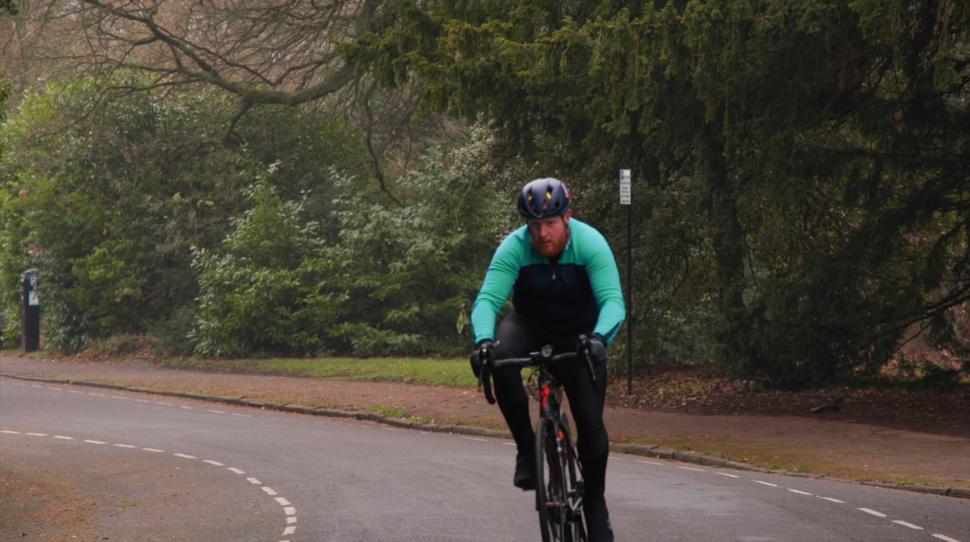
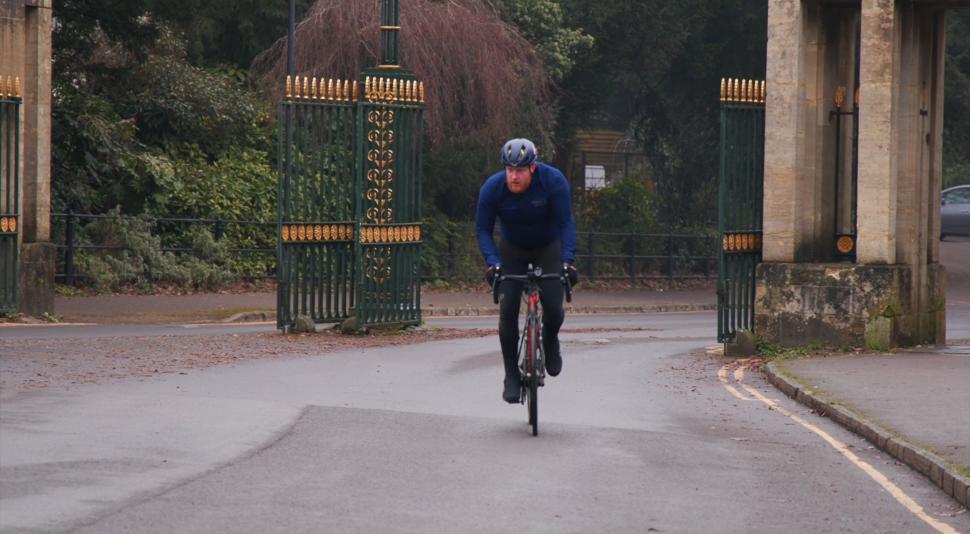
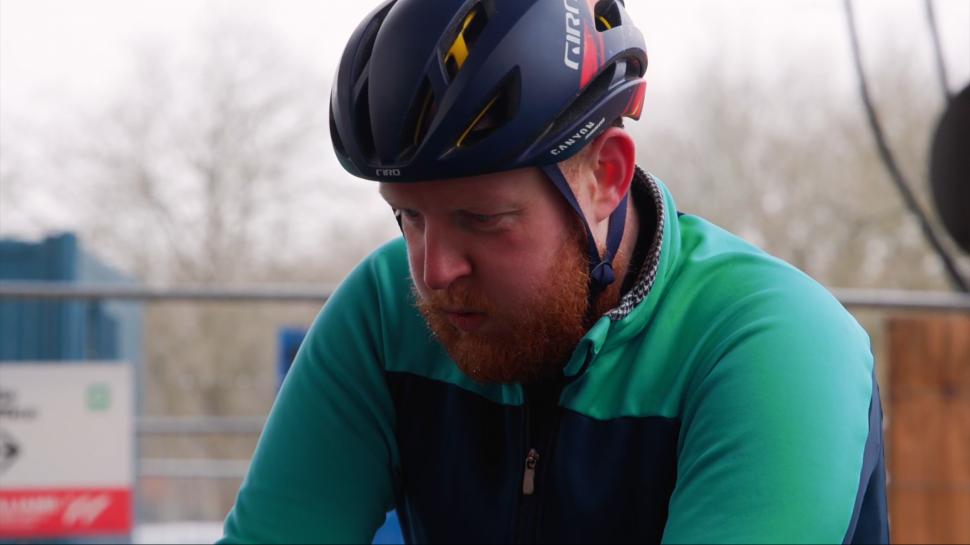
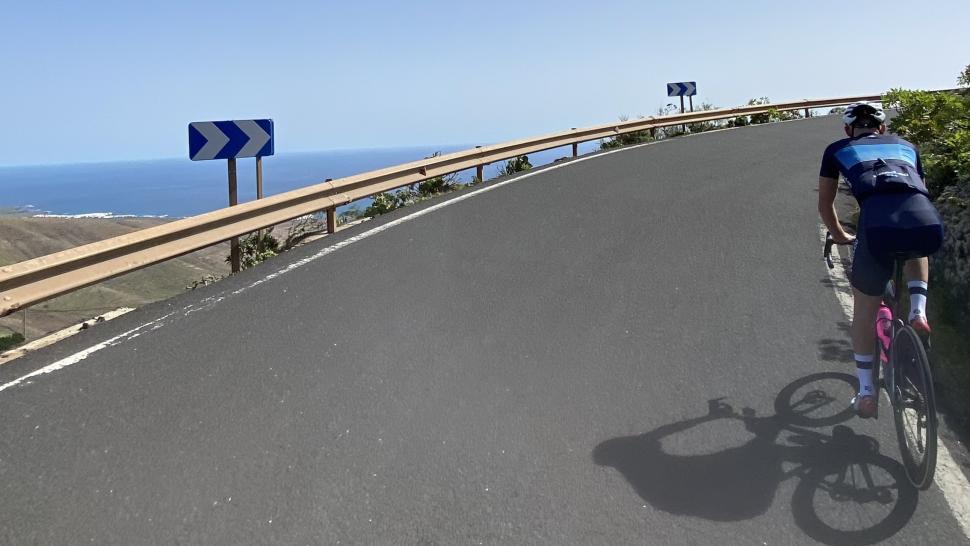

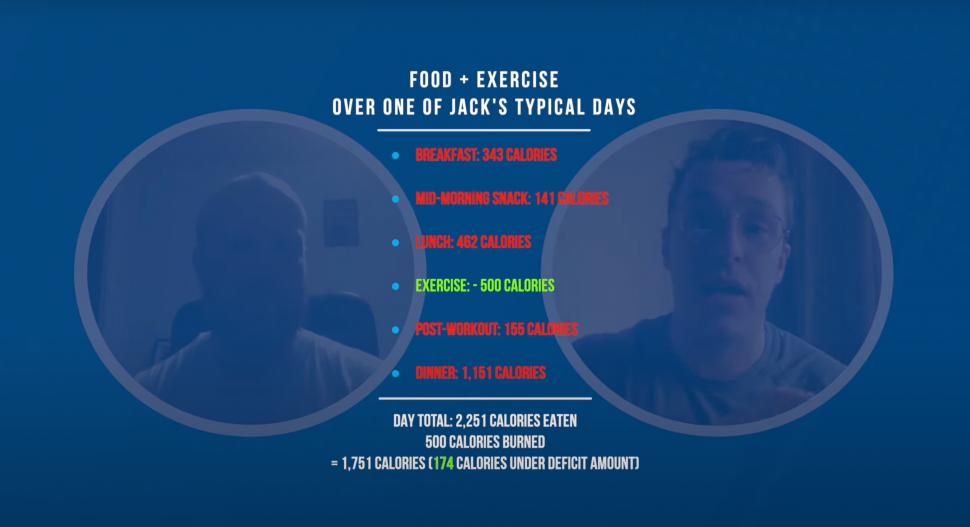
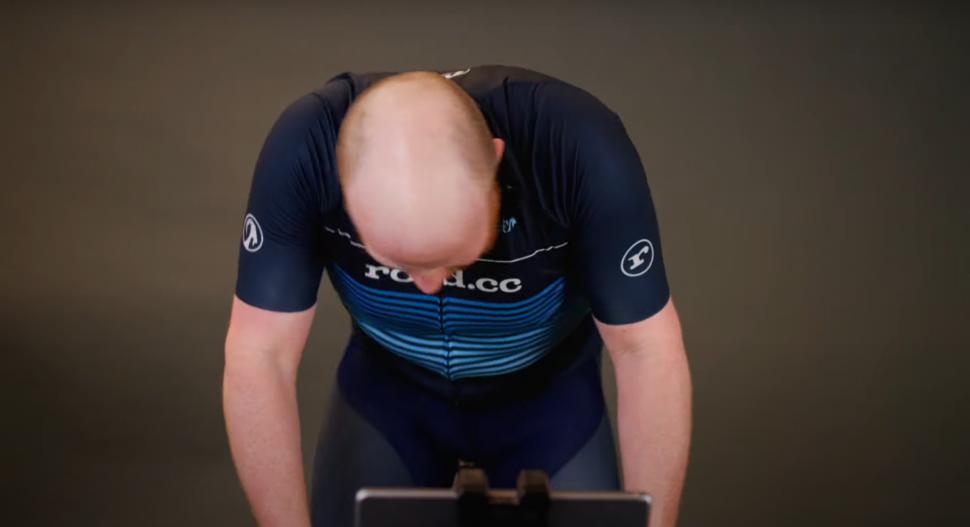
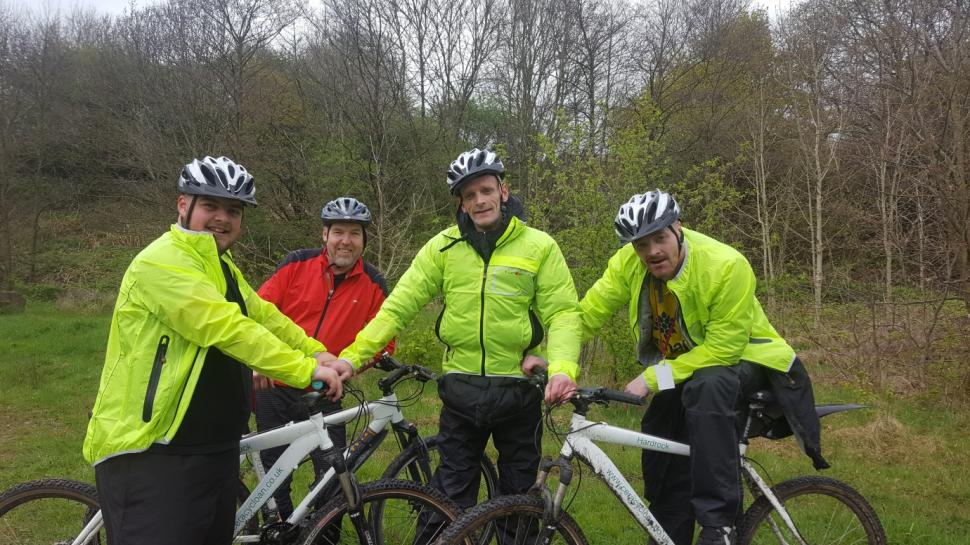

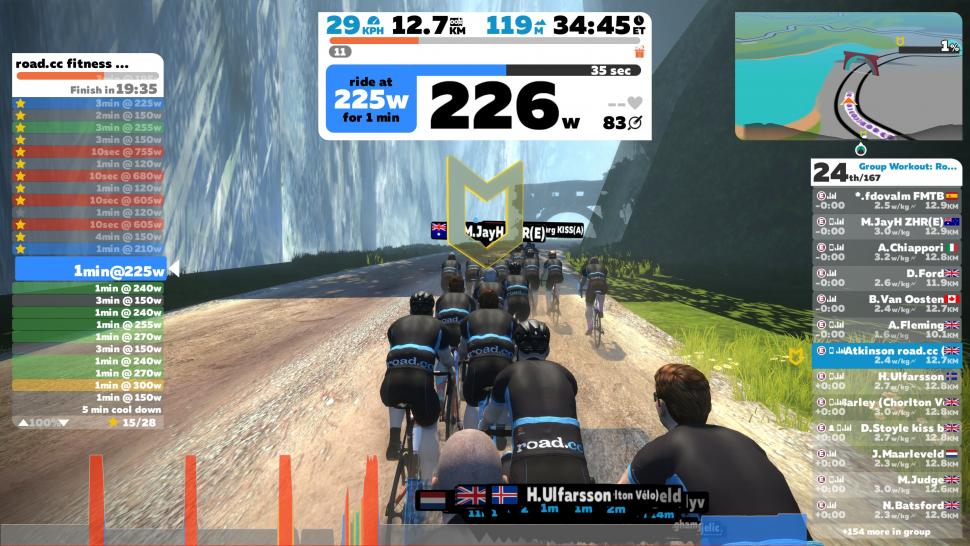
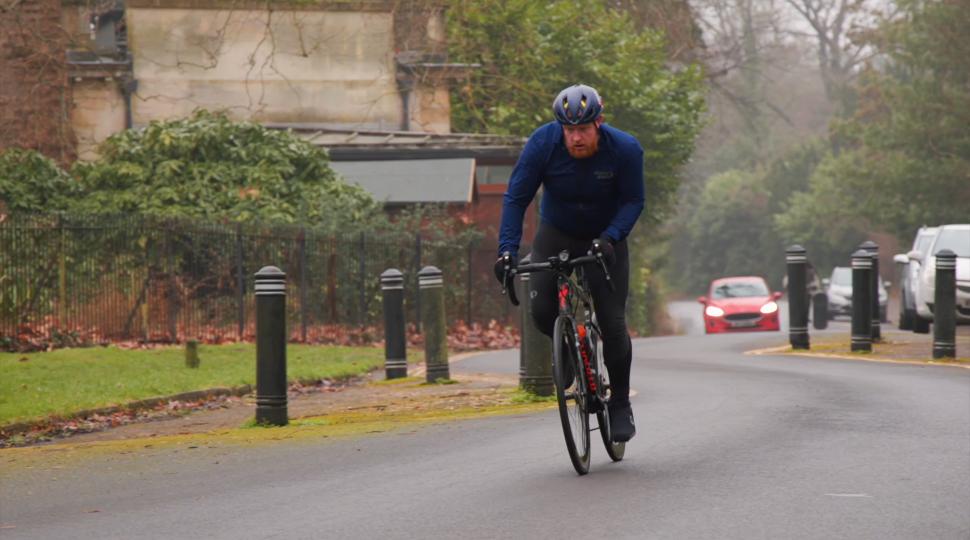
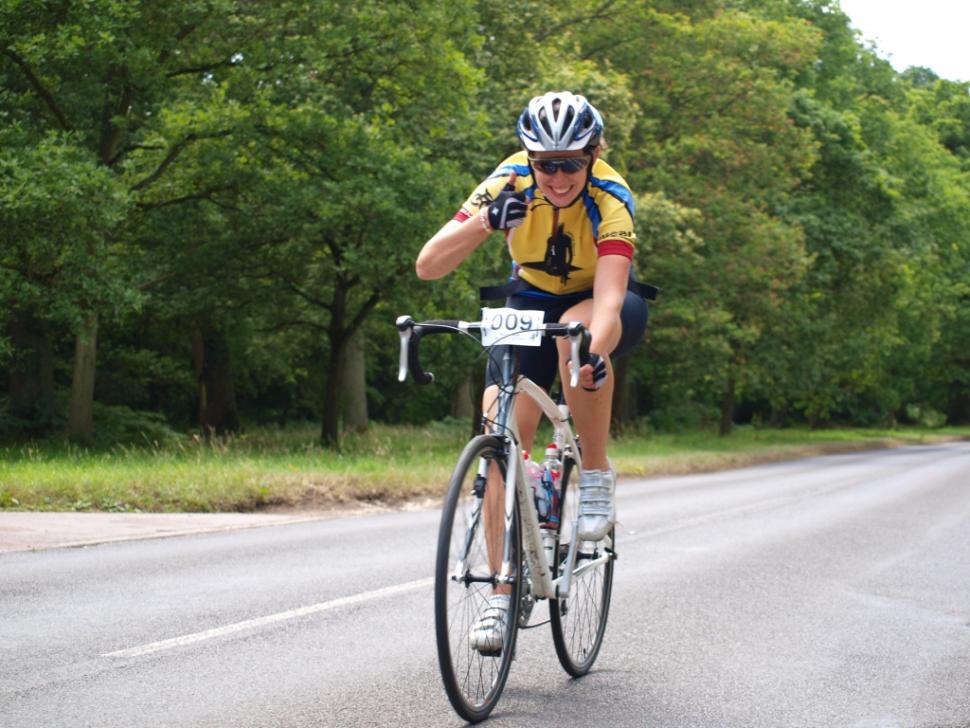
Add new comment
41 comments
I had the strangest dream last night. I was rowing down a river on an upturned cello and there were groups of people on the riverbank playing banjos (five string) and pointing and laughing. What's that all about then?
Slightly off topic re loss of weight being the measure, but these studies (particularly the second link to the full study report) by the BMJ into the benefits of active travel, notably cycling, might be worth a read by anyone actually interested in having an informed opinion on the subject.
https://www.bmj.com/content/357/bmj.j1740
https://www.bmj.com/content/357/bmj.j1456
TL:DR
Conclusions
Cycle commuting was associated with a lower risk of CVD, cancer, and all cause mortality. Walking commuting was associated with a lower risk of CVD independent of major measured confounding factors. Initiatives to encourage and support active commuting could reduce risk of death and the burden of important chronic conditions.
Well knock me sideways. Still it's nice that they've gone to check.
I assume that this will now be "encouraged and supported" by the government and relevant authorities in the regular fashion eg. with warm words (hot air), with paint and signs and mostly by spending more money facilitating driving.
Hardly surprising, but it's always nice to have some properly conducted, peer reviewed research by a recognised and highly credible source which is large enough in scope to account for confounding factors and come out with very clear, quantifiable results.
If anyone wants to pitch a contrary opinion based on their own personal anecdata then they sure have a high bar to claim equal credibility.
As we know though carefully gathered data and thoughtful analysis have low currency in public discourse. They have about zero below the line. And if you're just here for a knockabout or getting attention by saying a naughty thing none of that matters anyway!
EDIT apologies, you already said the latter - "worth a read by *anyone actually interested in having an informed opinion on the subject*."
As an aside, I am always impressed with ex-sports people who have remained slim. They will have needed a high calories intake when training/competing, but eating habits are hard to change, so I am not surprised many put on weight when they finish.
Like The Great Helmet debate, I'm not sure obsessing over the right sort of bike exercise does anyone any good. The fact is that hopping on a bike and pedaling is a good thing, whether it's an e-bike, MTB or whatever. Ride safely and ride as far and as hard as you enjoy and without especially trying you will naturally get stronger, fitter, and slimmer. The added advantage is that pedalling is quite gentle on the joints, so as long as you keep yourself safe, there tend to be few side effects from pedalling away.
I agree with all that, but as JustTryingToGet said, there is still a big benefit to mixing things up a bit and not just relying on your cycling. Over the last few weeks, I've just taken to doing the odd plank plus reps with 2kg dumbbells and I'm really feeling the benefit.
This really is a simple formula:
You don't need to ride a bike or do any exercise at all to lose weight, all you need is a modicum of self-control to keep your hands off the jammy dodgers and wagon wheels. If you do exercise, you will of course raise your base calories required to maintain a healthy weight.
Also, it isn't true that you gain more weight when you get older. That's an excuse pedalled by the weak-willed, hard-of-thought, and helplessly gluttonous. As you age, your body will require (slightly) fewer calories in a day, so you simply adjust your calorie intake as needed.
You also don't need a fad diet or training plan, just eat sensibly. The end.
Even though this is true in a sense, it's also worse than useless because it parades around as profound, discussion-ending insight while completely ignoring the mechanisms that control the amount of calories consumed and expended, which is what we really need to understand if we want to figure out how to design interventions that will successfully get us closer to our desired outcomes. To look at it from another angle: the calories in/calories out mantra utterly fails to suggest a route to an actionable plan that can be reliably and successfully implemented.
This is precisely the problem with calories in/calories out thinking. It too often leads to the reductive belief/claim that healthy weight maintenace is a simple moral matter (It's all so easy--just don't be a fucking slob!) when in reality it's an incredibly complex biological matter that's made all the more intractable by the historically anomolous amount of cheap and easily available calories in our modern environment.
So yes, of course, if calories in/calories out thinking works for you, great, keep up the good work. But it clearly doesn't work for a huge number of people. Call them weak, undiscipled slobs if you like, but repeating your mantra isn't going to change that. People are what they are, and if we genuinely want better outcomes for society (as opposed to simply signaling our own superior character), we can't just point the finger of blame at people and call them nasty names; we have to examine the functional mechanisms responsible for their undesirable behavior (hint: being "weak-willed, hard-of-thought, and helplessly gluttonous" isn't a functional mechanism) and figure out how to tweak those mechanisms and their inputs in order to more reliably yield the desired outcomes.
Before the world became helplessly woke, you'll have noticed (if you weren't around watch some old TV) that the population at large was much fitter and of a healthy constitution and weight than today.
Then, when people started treating excess weight as some kind of disease, rather than what it is - for the most-part a complete and utter lack of self-discipline and control - people felt entitled to pile on the pounds without the worry of being treated with a justifiable contempt.
To bring back normality, we need to go back to basics and recognise obesity for what it is. Once this happens, society will be healthier and happier.
It's all very well throwing an arm round people and telling them everything is OK and someone else's fault, but in the long run honesty is the best policy. If you're fat the chances are you're the person to blame, recognise it and do something about it - that will gain my respect.
People may have been thinner but it would be a mistake to think they were necessarily healthier, malnutrition being a serious issue. The biggest improvement to UK health was rationing, which reduced certain food groups and importantly, increased certain food groups for a significant part of the population.
Fuck all to do with being "woke" and the very opposite of self control.
What was your previous user name?
Yup - walks like a duck and quacks. Several of the previous bees present and correct in bonnet.
Of course that doesn't necessarily distinguish that specific PBU from any number of mundane "edgelords" everywhere. Given that the last one just wouldn't flush though that's the most parsimonious explanation until further data are in (hopefully they won't be around for that long).
Lol. You'll hardly find a more staunch critic of wokeness than me, but reductively attributing the obesity epidemic and general health degradation to wokeness is one of the stupidest things I've ever heard. Sorry, I much prefer to engage in reasoned discourse than to sling insults, but this is too much for me.
Ok, but what *is* self-discipline and control? It's not just some moral attribute that you will yourself to have irrespective of the biological conditions within your body and the environmental conditions outside it. Rather, it's precisely the result of a complex interaction between your biology and your environment.
You yourself seem to recognize that to some extent, as you believe that woke culture (i.e., the environment) has caused people to gain weight. But then you leave out all the other stuff that constitutes the environment--cheap and easily available calories, city design that discourages self-locomotion, classroom and office environments that demand we remain sedentary throughout most of the day, etc.--and you completely discount biology, instead chalking up the whole thing on that end to the moral self.
That's just not how it works. Our evolutionary history has shaped our biology to be fit in a particular environment, and we're now experiencing the devastating reality that our modern environment is in many ways extremely unkind to that biology. If we want to improve things, we need to better understand that relationship and figure out how to effectively intervene in it.
"You'll hardly find a more staunch critic of wokeness than me"
That's a shame as being woke means being aware of systemic biases and discriminations, like racism, sexism, ableism and such like, which could even include the discrimination of some people for their choice of transport
I'd argue that wokeness is about grievance-mongering, virtue signaling, and a sanctimonious insistence on linguistic purity and toeing the party line over finding genuine solutions to help the people wokesters claim to care about.
Case in point: I was in the middle of making a sustained, substantive, rational critique of a viewpoint that is harmful to many poor and otherwise disadvantaged persons, and instead of acknowledging or engaging with the substance of my critique you derailed the conversation and attempted to undermine my credibility by criticizing my naughty language choice regarding a tangential point and the naughty team you therefore associate me with. And I'm on (what I presume to be) your side!
Rather than policing people's failure to recite your shibboleths, I recommend focusing on what really matters.
Woke does not mean what you think it does.
e.g. Cambridge English Dictionary definition https://dictionary.cambridge.org/dictionary/english/woke "aware, especially of social problems such as racism or equality"
and Collins https://www.collinsdictionary.com/dictionary/english/woke "Someone who is woke is very aware of social and political unfairness"
I think it's been re-invented! Totally agree - I understand this was the original sense (apparently mid-early last century coinage).
However a new coinage has arisen - probably coined by those who were against the idea of racial / social equality (I think as a label for the US left by the other side. Sense 2 would be a negative label: "being concerned on behalf of a group you don't belong to; insincere 'performative activism' ".
It's exactly this sense ("wokesters") that was used.
I agree with you in that people using that label are often begging the question themselves: eg. "so do just you oppose *anyone not directly affected* noticing the inequality and saying something about it, are you opposed to *everyone* complaining about this discrimination or do you not believe this is discrimination at all?"
ejocs has explained themselves a bit anyway. I suspect just leaving it as a lexical disagreement for now would leave more energy for addressing the actual problem under discussion.
I'm sure the revenants here (plural now it seems) are just lapping up the hate either way.
I'm an American who holds a number of substantively left political views and who abhors the politics of the US right.
My criticism of the wokelords stems precisely from frustration that they are doing much harm to, and little good for, the left projects that I care about. See, for example, my illustration above of the totally unhelpful role marmotte27 played in the current discussion--they completely ignored the substance of what I was saying and instead chose to nitpick and scold over a over a minor linguistic point, thereby totally shifting the focus of the entire discussion away from my substantive defense of disadvantaged persons and onto this unhelpful bickering over what words mean.
Yes, I suppose in some sense I started it by making a woke-critical comment in the first place, but I made it advisedly, in an attempt to try to establish a point of common concern with a debate partner with whom I share no other commonalities--not to mention that I then immediately went on to harshly criticize his criticism of wokeism. But the wokesters' heads are so far up their own sanctimonious asses that none of that matters--I failed the purity test, so that's what we should focus on.
I'd be with you in your criticism of the original poster, but a point of order:
I doubt you'll establish points of commonality with that poster. Or rather - I hope not. It would appear to be yet another return of a serially banned poster. One also prone to renaming and possibly deleting / recreating their account and occasionally pretending to be "some foreign johnny".
If so "debate partner" is an illusion - that's not what they're here for! Or to put it another way perhaps, what they might describe as "debate" is as far from most people's understanding of that concept as your usage of "woke" (meaning 2 - a critical / mocking term for "bloody liberals / sanctimonious types / the politically correct") is from the original one ("aware of and actively attentive to important societal facts and issues (especially issues of racial and social justice)")!
You're right, of course, although I will note: 1) this thread started some days ago, right when that poster first popped up (in current guise, anyway) and before it was clear who/what he really was (yes, there were already some telltale signs, but then on to the next point) and 2) in any event I wanted to counter his points substantively (engaging with such posters is fraught, but it's also not great to just let their idiotic statements stand uncontested) without the thread turning into a shit show, and I succeeded--well, with regard to him anyway.😉
Lol, of course they would define it as that. If you worked with any publishers you'd know they are riddled with wokists.
They hardly going to define themselves as something negative are they, like the proper definition of "1) A fake state of social concern, used as a prop by useless white middle class individuals to get ahead in their careers. Especially used by people who put their "preferred pronouns" at the end of their emails. 2) angry left wing middle class people, so furious at poorer white people voting (in the UK) for Brexit or (in the US) for Trump, that they'd like to impose a system of racial discrimination against them as punishment."
I could reel off a couple of alternative definitions, none of them complimentary, but I can't be bothered.
*Complimentary. That's what happens when you won't buy a dictionary because you think they're published by "wokists".
Er no, that's what happens when you're writing on a mobile phone and the "autocorrect" function helpfully inserts the wrong word. Thanks for pointing out the error though, if you write to OUP or someone they might have a career going as junior editor assistant - seems like you're short of things to do.
I'm going with ejocs version - "wokesters" - "wokists" sounds like a Ken Hom cult.
Were you this unhinged under your previous user name? Fucking mental.
Gosh these middle class lefties eh? Bloody hell. Can't we introduce death camps or something? We could put fat people in there as well - anyone with a BMI over 28 perhaps. And people with monobrows. And that bloke round the corner from me, he looks a bit shifty, shove him in there as well. Seriously, are you going to be on here long? I've got some cobwebs to count in my shed, I might as well do it now.
Although I'm guessing, I'm willing to bet that if you took a cross section of 'woke' media commentators/journalists and a cross section of, shall I say, more 'gammony' ones, then it would be the latter who were significantly more overweight.
Of course this is all true, but really the odds are stacked against you - depending on your physiology.
The same physiology that makes you a great endurance athlete - the ability to absorb, process and allocate energy - also has the potential to make you gain weight. I say this, as if you are not predispositioned to absorb, process and allocate energy, I get why you might struggle to understand why others can't manage their weight.
Also, the in and out formula is all well and good, but completely glosses over the idea that what you eat can have a massive influence on how easy it is to maintain the calorific deficit.
It also ignores the reality that any significant calorie deficit is going to generate a physiological self preservation response. Your body will do exactly what you would do if your spending outpaces your income... you either find additional revenue streams, or rein your spending in. The body will tell you that its hungry, and if you don't find it more food, it'll assume you are in a famine and start breaking down muscle to reduce your basic metabolic rate.
Brilliantly clever, but a pain the backend for those looking to lean up.
Even if this were true (it's not) how much are you obsessing over counting Calories that this is working for you? If the balance were off by ten Calories per day (250 steps or 0.2 miles of cycling short, or biting just the head off a single jelly baby too many) you'd gain a pound per year, ten per decade.
Pages